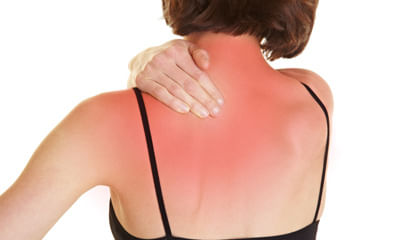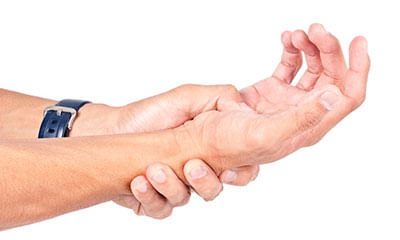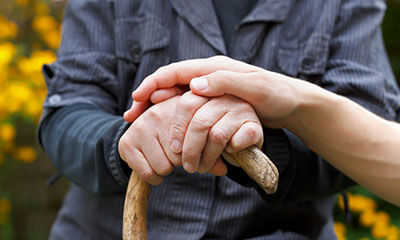Neck Pain And Tremors
Hello doctor I am 28 years old for the last 2 years I am 1) feeling weakness and energyless sometimes shivering in my bo ...
Ask Free Question
You may have hypothyroidism and need to check your blood for thyroid profile and correct the mistakes if any.
Hello Sir, I am 21 years old. My one finger of right hand always shake I am unable to writing, and my back side of neck ...
Ask Free Question
Use collar will definitely be helpful for him to maintain the good posture. And also cervical pillow can be used which might make you to have better posture of the shoulder neck and arm. Neck tilt: from the sitting position, tilt your head down so your chin touches your chest. Hold this position for 5 second s. Return to the starting position and repeat. Do this five times. Side-to-side neck tilt. From the same starting position, tilt you neck toward one shoulder, leading with your ear. Hold for 5 seconds and then return to the starting position. Do this five times on each side. Neck turn. Look straight ahead, then turn your head to one side, keeping your chin at the same level. Do this five times on each side. Neck stretch. Holding the rest of your body straight, push your chin forward, stretching your throat. Hold for 5 seconds. From the same starting position, push your chin backward and hold for 5 seconds. Do the forward and backward stretch five times each. If any of these exercises cause severe pain or weakness in your hands or arms, stop right away and talk with your doctor.
As I am an underweight person I was recommended by doctor to eat protein rich food such as egg bread butter cheese milk ...
Ask Free Question
Lifestyle Many people who can't gain weight don't realize they are not getting enough calories to gain weight. Skipping meals due to a busy schedule or simply not consuming enough of the right foods, such as fats or carbohydrates, can be factors. Exercising but not consuming enough calories to make up for the expenditure is another common reason you might not gain weight. Monitoring your daily caloric expenditure and intake can help determine if this is the case. Hyperthyroidism The thyroid gland affects your metabolism through the hormones it secretes. When it produces too much thyroxin, your metabolism will speed up and you will burn calories more rapidly -- a condition known as hyperthyroidism. Your appetite will often increase, and you may not gain weight despite eating more. Other symptoms can include a rapid or irregular heartbeat, nervousness, anxiety, tremors in the hands and fingers and an increase in bowel movements. Women may see a change in menstrual patterns. You may also feel an enlargement in your neck. Muscle weakness, weight loss and fatigue are also common symptoms. If you experience any of these symptoms, contact a doctor immediately. Diabetes There are two types of diabetes. Type 1 is usually diagnosed in childhood but can also be diagnosed later in life -- it is caused by a lack of insulin in the body. Type 2 diabetes is marked by resistance to insulin and usually occurs in adulthood. Insulin regulates the amount of glucose in the body, so weight and appetite are often the first things affected because glucose is our main source of fuel. Both types can lead to lack of weight gain, even with an increased appetite. Other symptoms of diabetes can include blurred vision, fatigue as well as increased appetite, thirst and urination. If you have any of these symptoms, contact a doctor. Gastrointestinal Issues Problems with the intestines can mean your body is not properly absorbing the food you are eating. Even if you are consuming a lot, you could suffer from malnutrition and not be able to gain weight. These types of diseases are known as "malabsorption syndromes. Some common forms of this disease type are irritable bowel syndrome, Crohn's disease, ulcers and celiac disease, according to the Mayo Clinic. Symptoms can include blood in the stool, abnormal bowel movements -- too many or too few -- fatigue, pain in the abdomen, gas and possible weight loss. If you are experiencing these symptoms along with no weight gain, consult a doctor for proper diagnosis. Considerations Hyperthyroidism, diabetes and gastrointestinal problems are the common diseases that can lead to losing weight or the inability to gain weight. But there are other, less-common, issues that could be at fault. Some prescription medications can increase your metabolism, which will burn more calories. Cancer, infection and neurological issues can all affect your weight, usually in the form of weight loss. Regardless, it's best to consult a doctor to get a proper diagnosis. Even if it ends up that you are one of those who simply has a hard time gaining weight, knowing what is at the root of the problem can offer relief and give you an indication of what your next step should be.
The problem started when I started gym. I got back pain but I thought it was normal. I went to so many doctors and I hav ...
Ask Free Question
It conform that you have sciatica and for complete cure you can go for homeopathic treatment as homeopathy have 100% results in sciatic pain you can go for some homeopathic medicine arnica 30 can notharis 30 alternative TDS for a week and try not to lift over weight things, avoid back bending work it jst give you temporary relief for complete cure you can consult if you cannot tolerate tight clothes or cannot tolerate round neck cloths than go for lachesis 30 3doses in 2 hr interval if this think help you than consult for further treatment.
I am experiencing panic attacks. I always gets pain in my left side of chest and arm and I get panic. Many a times I hav ...
Ask Free Question
Occasional anxiety is a normal part of life. You might feel anxious when faced with a problem at work, before taking a test, or making an important decision. But anxiety disorders involve more than temporary worry or fear. For a person with an anxiety disorder, the anxiety does not go away and can get worse over time. Restlessness or feeling wound-up or on edge being easily fatigued difficulty concentrating or having their minds go blank irritability muscle tension difficulty controlling the worry sleep problems (difficulty falling or staying asleep or restless, unsatisfying sleep) these are some of the symptoms. U seem to be having anxiety disorder, kindly consult a psychiatrist and get treated. It is not a heart problem, but a mind problem. Anxxiety and Panic occurs due to reduced serotonergic transmission in the mind. Since all organs have connections from the mind, when you have anxiety and panic there are changes in the BP/ and pulse rate. It is not a primary cardiac problem. So consult a psychiatrist and get your anxiety and panic treated.
Hi my age is 31 weight 90, from Recent times, when I do head bath my neck jerks and leads to neck stiffness which result ...
Ask Free Question
Hello Mr. lybrate-user apply ice gel pack for 10-15 min on your cervical area for stiffness. Do some cervical strengthening and stretching exercises twice a day. I'll explain you in brief when you will consult me. Thanks.
My hands and fingers started shivering for no reason from the past week and increasing by the day. They Can not seem to ...
Ask Free Question
Parkinson's disease-KAMPAVATA (A Neurological Disorder) Parkinson's disease is a neurological disease, or brain disorder, that leads to progressive difficulty with balance and coordination. In people who have Parkinson's disease, nerve cells in a region of the brain known as the substantia nigra become damaged or die. These cells are important because they produce the chemical dopamine, which helps to coordinate body movement-basal ganglia. When dopamine-producing cells degenerate/die, the areas in the brain that control movement can no longer function properly, and symptoms of Parkinson's disease eventually develop. Parkinson’s Disease Prevalence:- Parkinson's disease can affect anyone, but it most often occurs in people who are over the age of 50. Only 15 percent of Parkinson's disease patients are diagnosed before they are 50 years old. The prevalence of Parkinson's disease is nearly the same in both men and women, and recovery rate is more in men. People with a family history of Parkinson's may have a higher risk of developing the disease, but Parkinson's disease is rarely attributed to genetics alone. Parkinson's Disease Symptoms Symptoms of Parkinson's disease usually develop after about 80 percent of the brain's dopamine-producing cells are lost. The Main symptoms of Parkinson's disease include: • Tremors (Kampam)- Tremulousness (uncontrolled shaking or trembling) of the hands, arms, legs, face, body is often one of the first indicators of Parkinson's disease. • Rigidity. Profound stiffness or an inability to easily move the arms, legs, and trunk, pain and stiffness on neck muscles is another hallmark of Parkinson's. • Bradykinesia:- describes the unnaturally slow movements that are characteristic of people with Parkinson's disease. • Poor balance- Parkinson's disease affects balance, leading to difficulty walking and impaired coordination. The symptoms of Parkinson's are generally mild at first, but become more severe over time, until they eventually interfere with your daily routine. This is usually the point when treatment is recommended. The Outlook for People with Parkinson's disease Parkinson's disease is a chronic, progressive condition, which means it is a lifelong disease that worsens over time when it is not treated properly. Each individual's situation is different, but in general, the first symptoms of Parkinson's disease usually don't require treatment and may be restricted to one area or one side of the body. Movement of symptoms to the other side of the body • Tremors that become more pronounced and interfere with activities • Bradykinesia, or slow movement, that becomes disabling • Difficulty with hand writing • Impaired swallowing and chewing • Speech that becomes monotone • Poor balance and repeated falls • Slow, shuffling gait (manner of walking) • Stooped posture • Facial expressions that become stiff and blank • Chronic constipation • Poor bladder control • Sleep disturbances This progression is gradual in most people, but it may happen faster in some than others. Understandably, stress caused by the progression of the disease can lead to anxiety and depression. Ayurveda Treatment: There is cure for Parkinson's disease with Ayurveda treatment, With Ayurveda medicines and treatments we can relieve symptoms, slow down the progression and then we can completely arrest further degeneration of the of the cells, thereby we can completely control and cure the disease. If you are diagnosed with Parkinson's disease, it is important to work closely with your medical team, so your medications can be regularly adjusted to help you remain as functional as possible for as long as possible. As far as Parkinson's disease is concerned this is a brain related issue, so will surely effect the mind; so I recommend 49% treatment to patients and 51% treatment to family members.
My sister has shivering problem. She is always trembling. Especially her hands and legs. Does she have a hypertension pr ...
Ask Free Question
Parkinson's disease-KAMPAVATA (A Neurological Disorder) Parkinson's disease is a neurological disease, or brain disorder, that leads to progressive difficulty with balance and coordination. In people who have Parkinson's disease, nerve cells in a region of the brain known as the substantia nigra become damaged or die. These cells are important because they produce the chemical dopamine, which helps to coordinate body movement-basal ganglia. When dopamine-producing cells degenerate/die, the areas in the brain that control movement can no longer function properly, and symptoms of Parkinson's disease eventually develop. Parkinson? S Disease Prevalence:- Parkinson's disease can affect anyone, but it most often occurs in people who are over the age of 50. Only 15 percent of Parkinson's disease patients are diagnosed before they are 50 years old. The prevalence of Parkinson's disease is nearly the same in both men and women, and recovery rate is more in men. People with a family history of Parkinson's may have a higher risk of developing the disease, but Parkinson's disease is rarely attributed to genetics alone. Parkinson's Disease Symptoms Symptoms of Parkinson's disease usually develop after about 80 percent of the brain's dopamine-producing cells are lost. The Main symptoms of Parkinson's disease include? Tremors (Kampam)- Tremulousness (uncontrolled shaking or trembling) of the hands, arms, legs, face, body is often one of the first indicators of Parkinson's disease? Rigidity. Profound stiffness or an inability to easily move the arms, legs, and trunk, pain and stiffness on neck muscles is another hallmark of Parkinson's? Bradykinesia:- describes the unnaturally slow movements that are characteristic of people with Parkinson's disease? Poor balance- Parkinson's disease affects balance, leading to difficulty walking and impaired coordination. The symptoms of Parkinson's are generally mild at first, but become more severe over time, until they eventually interfere with your daily routine. This is usually the point when treatment is recommended. The Outlook for People with Parkinson's disease Parkinson's disease is a chronic, progressive condition, which means it is a lifelong disease that worsens over time when it is not treated properly. Each individual's situation is different, but in general, the first symptoms of Parkinson's disease usually don't require treatment and may be restricted to one area or one side of the body. Movement of symptoms to the other side of the body? Tremors that become more pronounced and interfere with activities? Bradykinesia, or slow movement, that becomes disabling? Difficulty with hand writing? Impaired swallowing and chewing? Speech that becomes monotone? Poor balance and repeated falls? Slow, shuffling gait (manner of walking? Stooped posture? Facial expressions that become stiff and blank? Chronic constipation? Poor bladder control? Sleep disturbances This progression is gradual in most people, but it may happen faster in some than others. Understandably, stress caused by the progression of the disease can lead to anxiety and depression. Ayurveda Treatment: There is cure for Parkinson's disease with Ayurveda treatment, With Ayurveda medicines and treatments we can relieve symptoms, slow down the progression and then we can completely arrest further degeneration of the of the cells, thereby we can completely control and cure the disease. If you are diagnosed with Parkinson's disease, it is important to work closely with your medical team, so your medications can be regularly adjusted to help you remain as functional as possible for as long as possible. As far as Parkinson's disease is concerned this is a brain related issue, so will surely effect the mind; so I recommend 49% treatment to patients and 51% treatment to family members.
I have been suffering from Parkinson's disease for the last two years and am being treated with levodopa (Dopamine) (Syn ...
Ask Free Question
Parkinson's disease-KAMPAVATA (A Neurological Disorder) Parkinson's disease is a neurological disease, or brain disorder, that leads to progressive difficulty with balance and coordination. In people who have Parkinson's disease, nerve cells in a region of the brain known as the substantia nigra become damaged or die. These cells are important because they produce the chemical dopamine, which helps to coordinate body movement-basal ganglia. When dopamine-producing cells degenerate/die, the areas in the brain that control movement can no longer function properly, and symptoms of Parkinson's disease eventually develop. Parkinson? S Disease Prevalence:- Parkinson's disease can affect anyone, but it most often occurs in people who are over the age of 50. Only 15 percent of Parkinson's disease patients are diagnosed before they are 50 years old. The prevalence of Parkinson's disease is nearly the same in both men and women, and recovery rate is more in men. People with a family history of Parkinson's may have a higher risk of developing the disease, but Parkinson's disease is rarely attributed to genetics alone. Parkinson's Disease Symptoms Symptoms of Parkinson's disease usually develop after about 80 percent of the brain's dopamine-producing cells are lost. The Main symptoms of Parkinson's disease include? Tremors (Kampam)- Tremulousness (uncontrolled shaking or trembling) of the hands, arms, legs, face, body is often one of the first indicators of Parkinson's disease? Rigidity. Profound stiffness or an inability to easily move the arms, legs, and trunk, pain and stiffness on neck muscles is another hallmark of Parkinson's? Bradykinesia:- describes the unnaturally slow movements that are characteristic of people with Parkinson's disease? Poor balance- Parkinson's disease affects balance, leading to difficulty walking and impaired coordination. The symptoms of Parkinson's are generally mild at first, but become more severe over time, until they eventually interfere with your daily routine. This is usually the point when treatment is recommended. The Outlook for People with Parkinson's disease Parkinson's disease is a chronic, progressive condition, which means it is a lifelong disease that worsens over time when it is not treated properly. Each individual's situation is different, but in general, the first symptoms of Parkinson's disease usually don't require treatment and may be restricted to one area or one side of the body. Movement of symptoms to the other side of the body? Tremors that become more pronounced and interfere with activities? Bradykinesia, or slow movement, that becomes disabling? Difficulty with hand writing? Impaired swallowing and chewing? Speech that becomes monotone? Poor balance and repeated falls? Slow, shuffling gait (manner of walking? Stooped posture? Facial expressions that become stiff and blank? Chronic constipation? Poor bladder control? Sleep disturbances This progression is gradual in most people, but it may happen faster in some than others. Understandably, stress caused by the progression of the disease can lead to anxiety and depression. Ayurveda Treatment: There is cure for Parkinson's disease with Ayurveda treatment, With Ayurveda medicines and treatments we can relieve symptoms, slow down the progression and then we can completely arrest further degeneration of the of the cells, thereby we can completely control and cure the disease. If you are diagnosed with Parkinson's disease, it is important to work closely with your medical team, so your medications can be regularly adjusted to help you remain as functional as possible for as long as possible. As far as Parkinson's disease is concerned this is a brain related issue, so will surely effect the mind; so I recommend 49% treatment to patients and 51% treatment to family members.
Hi, This is about my mother she is 50 in age and had been diagnosed with thyroid around 2 year back after that she start ...
Ask Free Question
My answer to your query is: 1.My mother she is 50 in age and had been diagnosed with thyroid around 2 year back after that she started taking medicine "Thyroxine Sodium Tablet-50 mg" and after few month it was in control but that 1 year back while she was still on thyroid medicine she had started having tremors in her right hand See there are 2 main types of thyroid related problem one is Hypothyroidism where body does not produces thyroid Hormone sufficiently and another is hyperthyroidism where body produces excess of thyroid hormone in the body. You had not mentioned which thyroid problem your mother is facing among these.In thyroid problem level of serum T3, T4 and TSH always monitored and in conventional allopathic treatment accordingly doses are adjusted. Hence monitoring is very important in all thyroid problem. Shaking of hand and tremors may be because of continuous use of above mentioned medicine also. 2. After doing some online research we find that it could be Parkinson and we had went to different doctors from renowned neurologist in Ranchi, Vellore, Patna but they have prescribed the same medicine syndopa and other tablets related to parkinson and for last few months she is under shoulder and neck pain 24 hours and as the pain is unbearable she is forced to take pain killers. I did some googling and found that tremors could be a side effect of thyroid but not sure I am worried that my mothers problems are not been diagnosed properly Please reply if someone have good understanding about these problems and genuinely want to help. This is the drawback of not getting complete information from site such as google. Of course early sign of parkison disease in most of the cases is tremor (that is also a characteristic pill rolling tremor of parkisons disease) but it is also associated with other signs and symptoms such as rigidity in muscles, slow movement of body, balancing problem, speech changes and also most important mask like face. So first confirm it. 3.Start Homeopathic treatment along with conventional medicines for long term effect without any known side effects as we after monitoring condition will stop the dosage in a time span.





